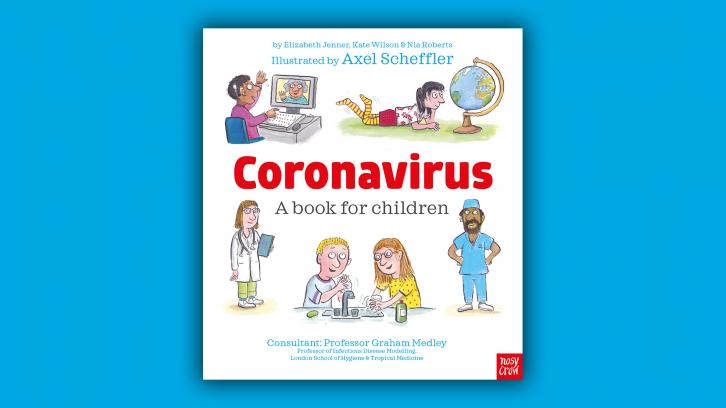How do I talk to my children about the Coronavirus?
Many children (and adults) will be worrying about what is happening in the world around them, this struggle could be increased by the things heard on the news, or simply in conversation. Some people will be able to put into words how they are feeling about the changes, while for others, this isn't possible. For those who find it hard to put worries into words, changes in behaviour can demonstrate that they are struggling.
There is so much uncertainty for so many people, it is very likely that children will have questions and worries; they may not even know how to begin to articulate them, or even to ask for help to do so. And when questions or conversations come, as a parent or carer, it can be difficult to know how best to answer and how best to respond in an age appropriate way. It can be tempting to try to solve problems and remove worries to protect your child but, in doing so, we can inadvertently make children feel that worries can't be thought about. It can be helpful for children to feel that you are able to think together about the things that are causing them concern.
What might help your child find words for their feelings
- Try to listen with full attention - there will be many distractions and demands on time, but it is especially important at this time to really hear what your child is saying and show them that what they are saying is important to you.
- Acknowledge their feelings, perhaps just a word - having spent time listening, even one word can be enough for your child to feel heard, or it can be helpful for you to simply repeat back the words that they have spoken to you.
- Give their feelings a name - some children may feel relieved to hear that you are trying to make sense of what they are telling you. If you can wonder with them whether they might be feeling for example scared, worried or sad, that might help make sense of their emotions and more able to cope.
(There is a book that I have found helpful for thoughts regarding talking to children which is called:
How to talk so children will listen and listen so children will talk - Adele Faber and Elaine Mazlish
There is also a teen version:
How to talk so teens will listen and listen so teens will talk)
Resources
|
Giving children a way to understand what is going on right now, and even the words to begin to ask questions can be helpful. Illustrated by Axel Scheffler (Gruffalo), this new book has been released to help children make sense of Coronavirus. It is free to download or print but there is an option to make a donation to NHS charities.
https://nosycrow.com/blog/released-today-free-information-book-explaining-coronavirus-children-illustrated-gruffalo-illustrator-axel-scheffler/ |
This freely available book has been written with input from 50 humanitarian organisations, including the World Health Organisation (WHO) and the United Nations High Commissioner for Refugees (UNHCR). It is aimed at children aged 6-11. The book is available online and as an audiobook, it is currently available in six languages, with over 30 more planned.
https://www.unhcr.org/news/press/2020/4/5e8ecdba4/childrens-storybook-released-help-children-young-people-cope-covid-19.html
https://www.unhcr.org/news/press/2020/4/5e8ecdba4/childrens-storybook-released-help-children-young-people-cope-covid-19.html
CBBC is a place where you can find articles about Co-vid 19 which have been written with children in mind.
https://www.bbc.co.uk/cbbc/search?q=covid
There are also some online resources that offer support in thinking about how to approach the conversation about Covid-19.
youngminds.org.uk/blog/what-to-do-if-you-re-anxious-about-coronavirus/
youngminds.org.uk/blog/talking-to-your-child-about-coronavirus/
www.unicef.org/coronavirus/how-talk-your-child-about-coronavirus-covid-19
https://www.nspcc.org.uk/keeping-children-safe/childrens-mental-health/depression-anxiety-mental-health/
Art Therapy at a Distance
Although art therapy has traditionally been carried out face-to-face, due to the circumstances of isolation there is potential to consider working remotely. It is not appropriate in all situations but it is something that can be thought about on an individual basis.
If you feel you would like to chat about this potential please feel free to contact me either by using the contact form or the details listed:
Phone: 07746 913751 or
Email: [email protected]
If you feel you would like to chat about this potential please feel free to contact me either by using the contact form or the details listed:
Phone: 07746 913751 or
Email: [email protected]


